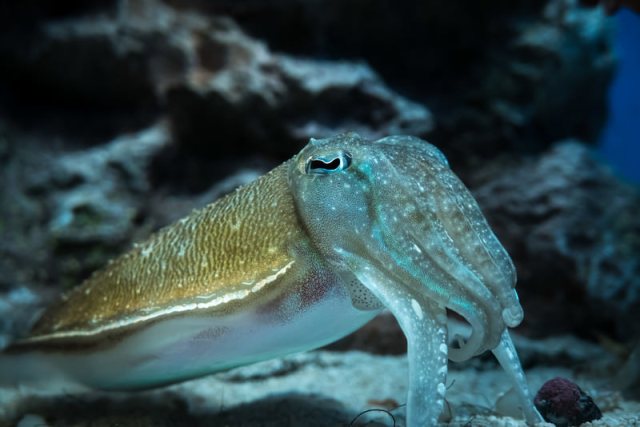A friendly reminder not to accidentally get squid sperm in your mouth it hurts

Even after they die, squids have a frightening way to get the last laugh.
When it comes to Japanese food, there’s often a lot of talk about the poisonous pufferfish fugu, and how improper preparation can lead to life-threatening toxins being ingested. But a similar danger lies in a much more commonly eaten seafood in Japan, the humble squid.
▼ A very humble-looking squid

The danger here lies in getting a mouthful of squid sperm. Sure, that isn’t as life-threatening as being poisoned but it is much worse than just being really gross and will likely require a medical procedure to fix.
To understand why, let’s first look at how some species of squid eaten in Japan make babies. When a boy squid and girl squid love each other very much, the boy squid shoots its sperm at the girl and then goes away. Sure, it’s not terribly romantic, and quite frankly, the sex of the other squid doesn’t even seem to matter as sperm has been found on male squids as well. They probably just shoot sperm at any other squid they find and hope for the best.
Because this all happens in the ocean with its strong currents, the sperm shot needs to be transported safely from one animal to another. To do this, it is kept in a type of protective pod called a spermatophore which is a long tube-like vessel. It consists of an outer sheath that, when stimulated by external pressure, fires out the inner spermatophore that corkscrews itself into whatever flesh it can find so it is securely connected to the other squid before draining out the actual sperm inside.
▼ Video of a squid spermatophore’s outer sheath being stimulated into firing its inner part
It’s been a bit of a mystery how the sperm manages to get from this dart to the female’s eggs, but recent research suggests she has her own personal sperm bank under one of her arms that it gets funneled into and then she applies it to her eggs after laying them in a sort of in vitro fertilization situation.
By now, you might see the potential hazard with getting one of these spermatophores in your mouth. Normally, this isn’t a problem because a squid is thoroughly gutted before preparing, but if an unskilled or inattentive chef were to accidentally leave a spermatophore or ten behind, it could spell trouble. Even if the squid is dead, its spermatophores still retain the reflex action needed to fire its inner spermatophore into flesh when stimulated by chewing.
▼ Here’s a very good look at how a squid spermatophore can penetrate a tongue, using some beef tongue as an example. It’s not terribly graphic but also not recommended for the squeamish.
People who were unfortunate enough to have gotten these things in their mouth have reported a stinging sensation. And although they’re large enough to be clearly seen with the naked eye, their small size makes them very hard to remove by conventional means like tweezers. Doctors had to go in deep with forceps to dislodge them.
Luckily, because cooking, freezing, or thorough gutting will solve the problem, it’s a fairly rare occurrence. One famous case about 10 years ago involved a woman in Korea who ate a squid that wasn’t boiled enough to disable the spermatophores. Last year, a Japanese man had also fallen victim to squid sperm after eating undercooked squid.
A far more common threat from eating raw seafood, such as squid, is the Anisakis parasite, with around 500 to 1,000 cases reported annually in Japan. We usually just write this parasite off as “food poisoning,” and since the symptoms are caused by our bodies fighting off a worm that’s trying to eat its way out of our stomachs, it’s probably better that way.
Whatever the danger is, the solution is always to get your food prepared from a well-trained and responsible source. Stay safe out there!
Source: Maidona News, Oxford Academic, University of Tokyo, ITmedia, National Library of Medicine
Top image: Pakutaso
Insert image: Pakutaso
● Want to hear about SoraNews24’s latest articles as soon as they’re published? Follow us on Facebook and Twitter!
Credit:

0 comments:
Post a Comment